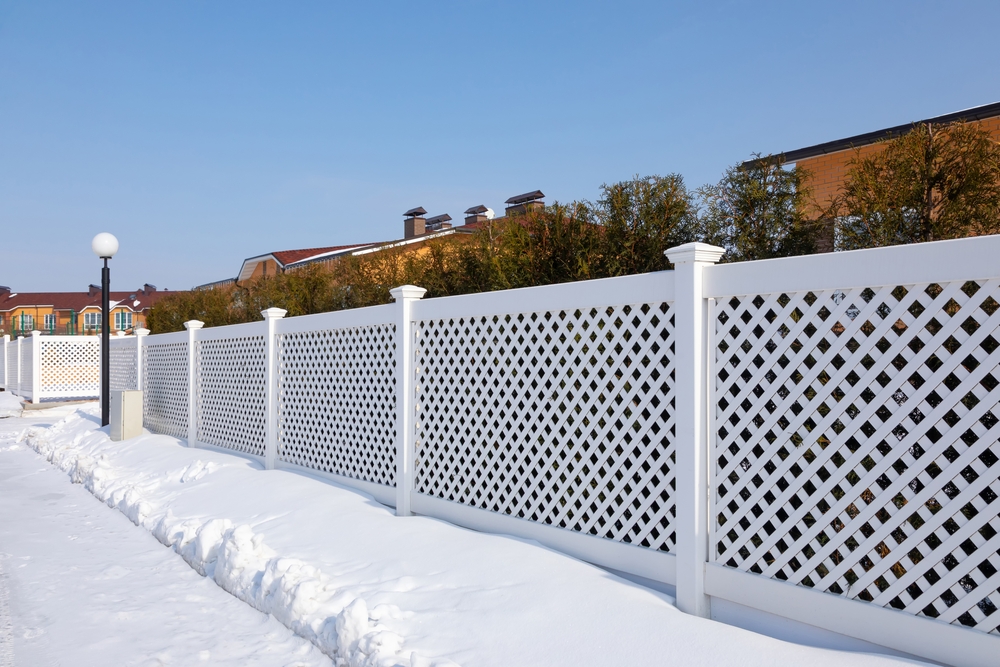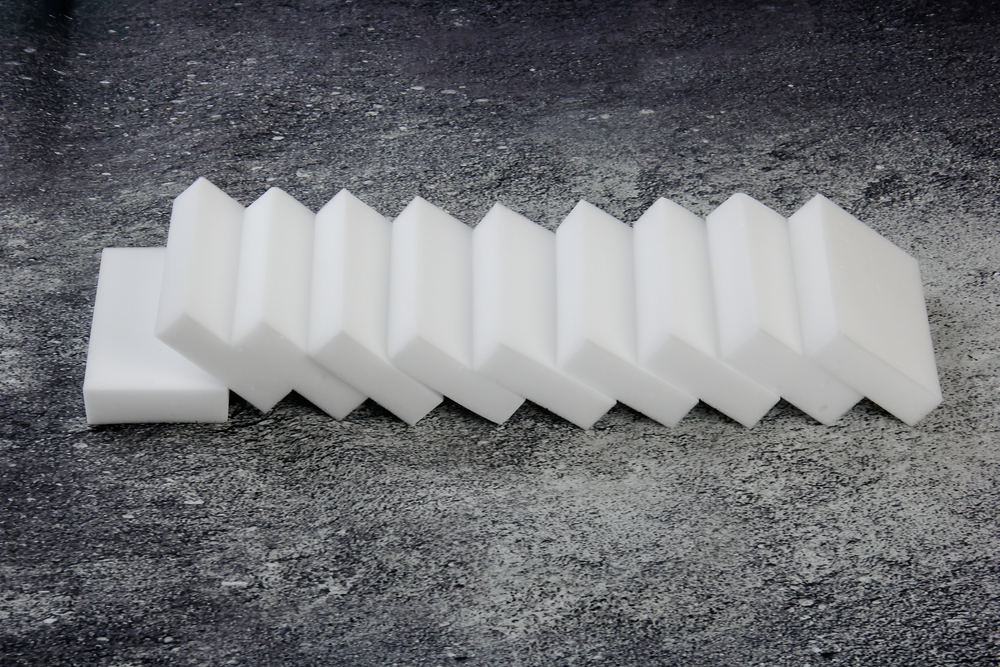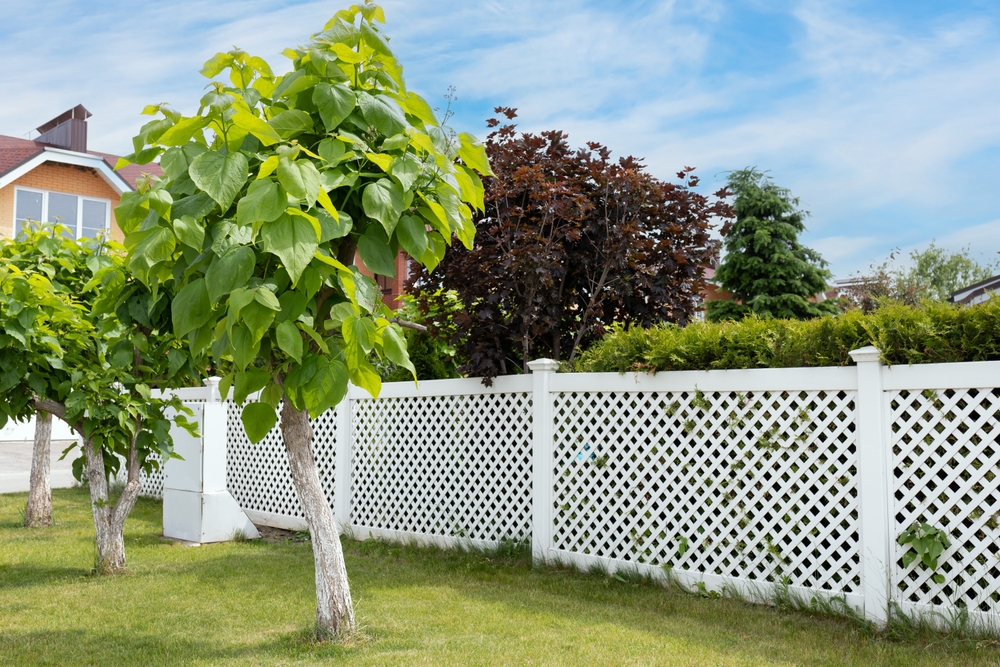Vinyl fences are generally well-suited for snowy climates and can withstand the challenges posed by snow and cold weather. However, their performance in snow depends on various factors, including the quality of the vinyl material, the fence’s design and installation, and how well it is maintained. Here are some considerations regarding vinyl fences in snowy conditions:
Advantages of Vinyl Fences in Snowy Climates:
- Durability: High-quality vinyl is durable and resistant to moisture, which is essential in snowy climates where fences can be exposed to snow, ice, and freezing temperatures.
- Low Maintenance: Vinyl fences are relatively low maintenance, requiring no painting or staining. They are easy to clean, which can be particularly beneficial after snowfall or when road salts and de-icing chemicals are used.
- Resistance to Rot and Decay: Unlike wood fences, vinyl fences do not rot or decay when exposed to moisture, making them a suitable choice in wet and snowy conditions.
- No Warping or Cracking: Vinyl is less prone to warping or cracking due to freeze-thaw cycles compared to some other materials.
Considerations for Vinyl Fences in Snow:
- Proper Installation: Proper installation is crucial in snowy climates. Fence posts should be securely anchored into the ground or concrete footings to prevent shifting or leaning under the weight of snow.
- Snow Removal: Vinyl fences can handle the weight of snow, but it’s a good practice to remove excessive snow accumulation from the top rail and panels to prevent potential sagging or damage. Use a soft-bristle broom or a snow rake to clear snow.
- Avoid Snowplow Contact: Vinyl fences should not come into direct contact with snowplows or heavy machinery during snow removal operations, as this can cause damage.
- Avoid Impact: Avoid hitting the vinyl fence with heavy objects or equipment when shoveling snow or performing other winter tasks, as this can potentially damage the fence.
- Routine Maintenance: Inspect your vinyl fence periodically for any damage, loose components, or signs of wear. Repair any issues promptly to ensure the fence’s integrity.
- Avoid Salt and De-Icing Chemicals: While vinyl is resistant to moisture, it’s advisable to avoid direct contact with road salts and de-icing chemicals, as they can potentially discolor or damage the vinyl surface over time. If contact occurs, rinse the fence with water to remove the chemicals.
Vinyl fences are a suitable choice for snowy climates due to their durability, low maintenance requirements, and moisture resistance. Proper installation and routine maintenance are essential for ensuring the longevity and performance of your vinyl fence in snowy conditions. By taking these precautions and caring for your fence, you can expect it to withstand the challenges of winter weather effectively.



